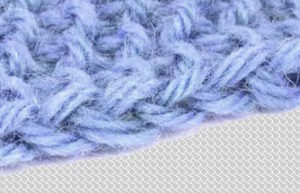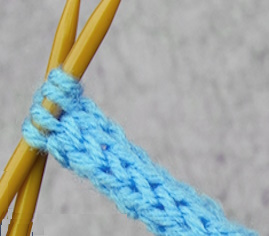Link: https://www.interweave.com/glossary/

This presentation helped me a lot. I viewed several s with instructions to do what this does, but this one worked for me and was easy to
remember and do.

https://newstitchaday.com?s=English+Slip+ Stitch+Selvedge+Edge
An I-cord is a good skill for every knitter and has a multitude of uses. It can be used as a drawstring, a decorative ribbon, closures for a sweater or a bag, or even jeweller on it’s own! The product we’re making in this video is the Knitting Me Softly necklace.

https://www.jimmybeanswool.com/secure-html/onlineec/instructionalArticle.asp?iaid=108
Has a video showing how to make an applied icord. This site has many other stitch tutorials.
To make an i-cord:
Posted by Laura of Jimmy Beans Wool
https://newstitchaday.com/how-to-knit-the-invisible-cast-on/
This video knitting tutorial will help you learn how to knit the Invisible Cast On. This cast on creates a rounded edge and is best used when elasticity and strength are needed.
https://www.interweave.com/article/knitting/lace-cast-on-bind-off-techniques/
The lace cast-on and bind-off methods yield flexible edges with enough give to accommodate the most aggressive blocking.
https://www.susannawinter.net/post/2018/12/21/61-provisional-cast-on-methods-tutorial
6+1 Provisional Cast-on Methods [Tutorial]
Provisional cast-ons are a way to create a temporary cast-on edge for your project, with the intention of knitting seamlessly in the opposite direction later. By using a provisional cast-on method you’re able to create a smooth, invisible join where the two directions of fabric meet.
Warm Hands Network
The Warm Hands Network volunteer knitters and crocheters with Northern communities to provide clothing to children in remote locations. The goal is not only to provide children with warm hand-knit clothing throughout the winter but also to convey the message that others wish them well.
They supply children in these communities with hats, mittens, neck warmers (no scarves please), socks, sweaters, vests and blankets. Their preference is for wool items and large sizes. See the Guidelines page for detailed information.
